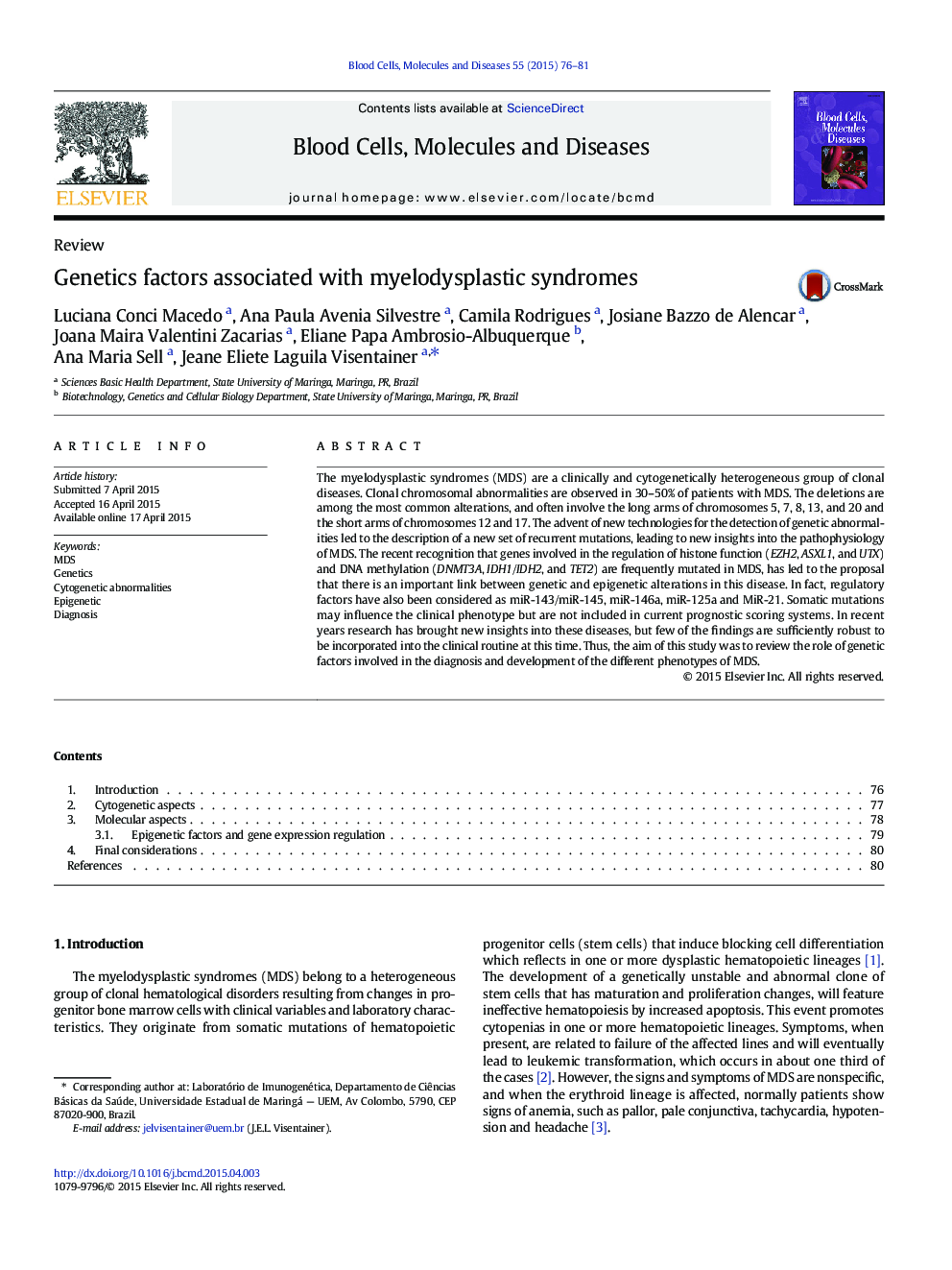| کد مقاله | کد نشریه | سال انتشار | مقاله انگلیسی | نسخه تمام متن |
|---|---|---|---|---|
| 2827077 | 1162415 | 2015 | 6 صفحه PDF | دانلود رایگان |
The myelodysplastic syndromes (MDS) are a clinically and cytogenetically heterogeneous group of clonal diseases. Clonal chromosomal abnormalities are observed in 30–50% of patients with MDS. The deletions are among the most common alterations, and often involve the long arms of chromosomes 5, 7, 8, 13, and 20 and the short arms of chromosomes 12 and 17. The advent of new technologies for the detection of genetic abnormalities led to the description of a new set of recurrent mutations, leading to new insights into the pathophysiology of MDS. The recent recognition that genes involved in the regulation of histone function (EZH2, ASXL1, and UTX) and DNA methylation (DNMT3A, IDH1/IDH2, and TET2) are frequently mutated in MDS, has led to the proposal that there is an important link between genetic and epigenetic alterations in this disease. In fact, regulatory factors have also been considered as miR-143/miR-145, miR-146a, miR-125a and MiR-21. Somatic mutations may influence the clinical phenotype but are not included in current prognostic scoring systems. In recent years research has brought new insights into these diseases, but few of the findings are sufficiently robust to be incorporated into the clinical routine at this time. Thus, the aim of this study was to review the role of genetic factors involved in the diagnosis and development of the different phenotypes of MDS.
Journal: Blood Cells, Molecules, and Diseases - Volume 55, Issue 1, June 2015, Pages 76–81
